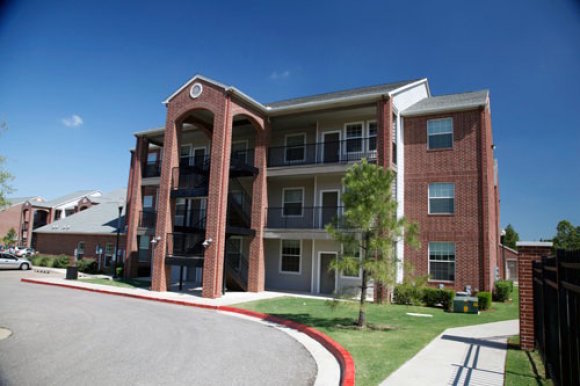Nationally, off-campus housing is generally cheaper than living on-campus, a Business Insider study found in 2015. Oklahoma Christian University’s handbook requires students to live on-campus, disregarding the possibility of cheaper housing options elsewhere.
Oklahoma Christian policy states all students must live on campus unless they meet one of five requirements: being a part-time student, being married, completing 124 or more credit hours, turning 23 years old prior to the beginning of the semester or living with parents.
According to director of residence Curtis Smith, approximately 81 percent of students at Oklahoma Christian live on campus in a resident hall or apartment.
“OC’s community is one of its core strengths,” Smith said. “I think there are a lot of places where you can go to college and get a degree, but one of OC’s strongest aspects is the fact that it’s good at creating a community of people who care about each other.”
Smith said the reason some students have chosen to live off campus in the past is because they believe it is cheaper.
“I think students need to acknowledge that apartment sticker price does not include all the things we include here,” Smith said. “It looks worse than it is, because when you live here at OC it includes your utilities and Wi-Fi. It’s not unusual for someone to come back and say, ‘OK, that wasn’t exactly what I thought it would be.’”
Senior Charlie Hancock said he chose to live off campus because it did save him money and he did not feel the need to participate in many activities on campus.
“I have more independence living off campus and, since I am financially independent from my parents, I like to make my own decisions on where I spend my money regarding rent and food,” Hancock said. “I also like not having to pay for a meal plan and I’ll have an easier transition when graduating.”
Hancock said living off campus has not affected his grades in a significant way. According to the National Survey of Student Engagement, living off campus has little to no negative effects on a student’s academic performance or engagement.
“The effects of living on campus can vary by different student subpopulations and across different institutional types,” NSSE said in a presentation. “The effect of the benefits may be even stronger in situations where students are in close proximity of each other.”
Sophomore Ally Grider said she enjoys living on campus because she can continue working with Resident Life and meet new people.
“Living off campus, I don’t think I would get the same experience because I wouldn’t be seeing my friends as much,” Grider said. “Since you don’t have a meal plan, you won’t be in the cafeteria with them and you won’t really see them unless you’re in class. That’s a big reason why I wouldn’t choose to live off campus.”
Smith said students are encouraged to live on campus, but to also choose what is best for them in their situation.
“If students are able to live at home with their parents and save money, they should definitely be able to do that,” Smith said. “At the same time, students are encouraged to live on campus and that’s why it’s a requirement. It’s a core part of who we are and comes out of a belief that students living on campus are going to get the best experience possible.”












Be First to Comment